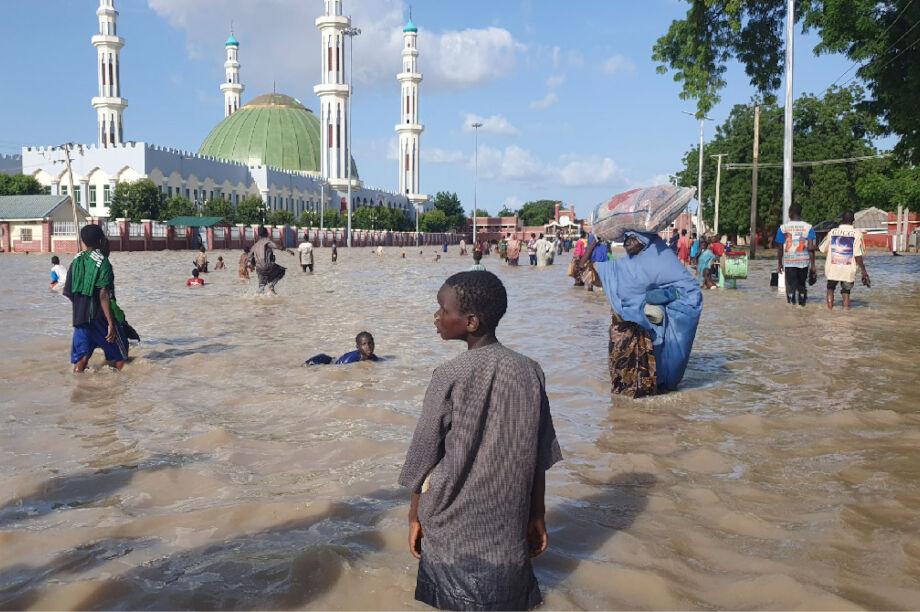Recently, the federal government announced the establishment of a “Disaster Relief Fund” to address national disasters like flooding. I struggled to understand the aim and objectives.
Yes, there is no doubt that when disasters occur, it is incumbent on the government to provide relief for those affected promptly to cushion the effect of such disasters. Does the country have a framework for addressing disaster situations, and have the agencies involved in disaster management lived up to expectations?
While establishing the Disaster Relief Fund seems a brilliant one on the surface, it left many unanswered questions about the core mandate of the fund and how effective it would be in disaster relief administration in Nigeria. It is not enough to receive funds in a central pool. The last I checked donations and funding are not the missing link in disaster prevention and management in Nigeria. But strengthening the capacity for rapid response to national emergencies. This is critical thinking.
Establishing a Disaster Fund is not critical thinking. There is deep suspicion about the quantum of money that could be made and who should be in charge of the anticipated inflow. This is what the government appears to be interested in. I stand to be corrected.
It also appears the government forgot there is an agency called National Emergency Management Agency (NEMA) whose mandate is to “coordinate resources towards efficient and effective disaster prevention, preparation, mitigation and response in Nigeria. It is also important to note that there are five phases of emergency management including prevention, mitigation, preparedness, response, and recovery.
Wale Edun, the finance the finance minister while making the announcement stated, “We know we do have the NEMA Relief Fund, we even have the Flood Relief Funds set up around 2012 but Mr President feels we need in this era of climate change, climate events as well as from time to time there will be matter in prevention measures there will be disaster that will occur.”
The emphasis was on the era of climate change. Is climate change a new concept? Who was supposed to remind the president about other agencies such as the Nigeria Hydrological Services Agency (NIHSA), which serves the preventive function in the disaster management ecosystem?
For the records, the NIHSA has a flood alert system that provides flood warning coverage, a real-time, community-oriented flood warning system geared towards reducing risks involved with flooding. The establishment of flood warning systems near any major waterway or body of water provides critical information that can protect property and save lives. I think that the government must also do well to strengthen the operations and capacity of NIHSA. If that is done, the implication is that the country would have addressed a key component in the National Disaster Management Framework (NDMF).
What this move by the government has done is begin the process of rendering some critical organs of government redundant and creating a parallel arm that would rival the existing structures. What happens afterward? The victims of disasters in the country would suffer because high-level politics would play out. It would indeed begin a regime of lethargy and blame game. This is a common feature in our clime.
Let’s make some assumptions. Say there was a disaster in a part of the country, and funds were donated for that purpose to the Disaster Relief Fund. Would there be a structure in place for the Disaster Relief Fund to address thethe situation , or would we rely on the network of NEMA, NIHSA, and other agencies in the ecosystem to ameliorate the situation?
Don’t forget that disaster situations require a rapid response approach. Creating bureaucracies ultimately defeats the purpose. It is not enough to channel energies towards warehousing disaster relief funds. What about prevention and the preparedness to manage disaster situations? This is key to ensuring a robust disaster management strategy.
What I had expected was strengthening the operations of agencies in the disaster prevention and management ecosystem for operational effectiveness. It is not rocket science. If there are noticeable lapses in operational effectiveness, the rational thing to do is to strengthen governance processes and structure. We can’t be duplicating roles and responsibilities given the dire economic situation in the country. No matter how coated it is, the Disaster Relief Fund is a duplication. It is unnecessary and runs contrary to the National Disaster Management Framework (NDMF), which provides a clear mechanism that serves as a regulatory guideline for effective and efficient disaster management in the country.The NDMF was conceptualized in 2018 and supported by the United Nations Development Programme (UNDP) to implement measures to enable communities, individuals, businesses and institutions to minimise the adverse effects of disasters in Nigeria, thereby enhancing the ability to prevent, prepare, respond to and recover from disasters across all elements in the country. It also caters to the accessibility and governance of financial resources for disaster management. It stated that for disaster-related matters (DRM) to be successful, “plans and operations must be linked with required financing for (a) immediate liquidity for relief and short/medium-term recovery, (b) resource mobilization for prevention and mitigation investments, (c) long-term recovery or reconstruction.”
In light of the above, my question is, what does the government want to achieve with the establishment of a Disaster Relief Fund where there exists a robust disaster management framework in the country? The onus lies in the hands of the government to provide answers to this question.
Etila, a development expert , wrote from Abuja

